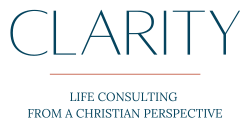(Learn to Discern, Principle #11)
An American friend of mine once found herself engaged in a conversation about family pastimes in Italian. “My mother gardens,” said one girl; “my sister paints,” offered another. “My father makes fruit preserves!” my friend joined in, enthusiastically. “Peach, strawberry, all different kinds,” she continued, slightly oblivious to the growing silence around the table. “The whole family helps, every summer!”
Finally, one of the older women at the table quietly asked her to clarify. “Fruit preserves!” My friend said again, in Italian. Noticing the shocked look on everyone’s faces, she stepped into the kitchen to get a jar of jam. Holding it up, she repeated triumphantly, “fruit preserves! See?”
The Italians then very kindly explained that “preservativi” in Italian does not mean “preserves.” It means “condoms.”
Talk about a learning experience.
Speaking the language through trial and error led my friend to discover “false friends”: words that sound similar in two languages but in fact mean very different things.
“False friends” are dangerous when learning languages, but they show up when we are learning to discern, too. They masquerade as something helpful, so we use them eagerly. Unknown to us, though, they are leading us away from our true purpose.
Fear is a false friend.
Because the process of discernment can only happen amongst good things, our motivation for choosing – or not choosing – those things becomes an important factor for our consideration. Discerning if we should change jobs, move house, marry this person, all demands that we ask why we want to do that particular thing. And fear very often puts itself forward as a strong motivator.
The problem is, fear is a false friend when it comes to discernment because fear’s main purpose is to keep us away from things that are bad, not move us towards things that are good.
We are afraid of not having a roof over our head, so fear stops us quitting our jobs when we just don’t feel like going anymore. Fear prevents us crossing the street without looking so we don’t get hit by a bus, and it hampers our urge to go camping in the wild without proper equipment or training, so we don’t fall off a cliff or get eaten by a bear.
Fear of things that actually can harm us is a great motivator to stay away from harmful things (or harmful people.)
But discernment isn’t about things that are harmful. We don’t discern options that are bad options.
Discernment is fundamentally a process of discerning between good things, and then moving towards one particular good thing. Fear only leads us astray.
Fear points us away rather than towards.
When looking at several good options, and trying to choose one, fear misleads us by turning us away rather than pointing us towards a good.
Discernment is all about moving towards something good. Fear points us away from unemployment and large trucks and bears, with good reason. But in discernment, fear will point us away from good jobs, fruitful changes, and helpful people.
Fear stops authentic choice because it moves you away from a good, without a good reason.
Fear removes us from the present reality
Fear might try to tell you that it actually has a good reason for pointing you away. After all, if you had a narrow escape from being eaten by a bear, fear will helpfully remind you not to go camping in that place again.
Fear is based on something that happened in the past or might happen in the future. It isn’t about the present.
Discernment, on the other hand, is always about the particular present reality in front of us. We can’t discern hypothetical things or past things: it’s impossible to discern something that doesn’t currently exist, because it isn’t a true option! (We can discern applying to medical school, for example, but we can’t discern going to medical school until we have applied and been accepted, and the option is actually in front of us.)
Fear as a motivator doesn’t give us access to the present reality, nor does it give us access to our true response to the good option in front of us. Fear is so focused on what happened in some other situation in the past, or potential situation in the future, that it doesn’t allow us to truly discern the present.
Fear blinds us
By shifting our focus away from the real goods in front of us, fear stops us from seeing all the good options as good. It can even cause us to eliminate a good option by telling us that it’s bad.
Discernment has to be grounded in the truth, which sees each good option for what it really is, and acknowledges our own reaction to that good option.
Conversely, fear acts as a negative motivation, urging us to choose one good because we are afraid of another. But why be afraid of something good?
Fear is a liar: there is nothing scary about good things.
Fear says: option B might hurt you, because it seems like that thing that happened 10 years ago. And B could end up in that same kind of disaster! So don’t choose B: choose A.
Notice here that option A isn’t chosen on its own merits: it’s just chosen because it’s not B.
Can you imagine telling Bob that you married him just because he wasn’t Dave? Or becoming a nurse just to not be an engineer? Or moving to Thailand because it wasn’t Japan?
Fear is really good at being a false friend, telling us that we’re making a well-discerned choice when in fact it’s causing us to be absurd!
When fear shows up in our discernment, it’s helpful to ask if it’s doing its job to protect us from harm, or being a false friend and moving us away from something good.
What about you? Do you experience fear showing up in your discernment?






